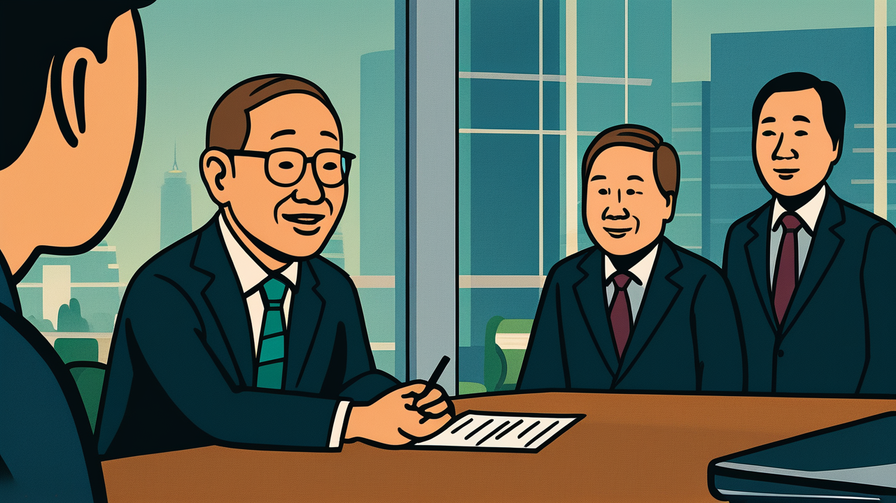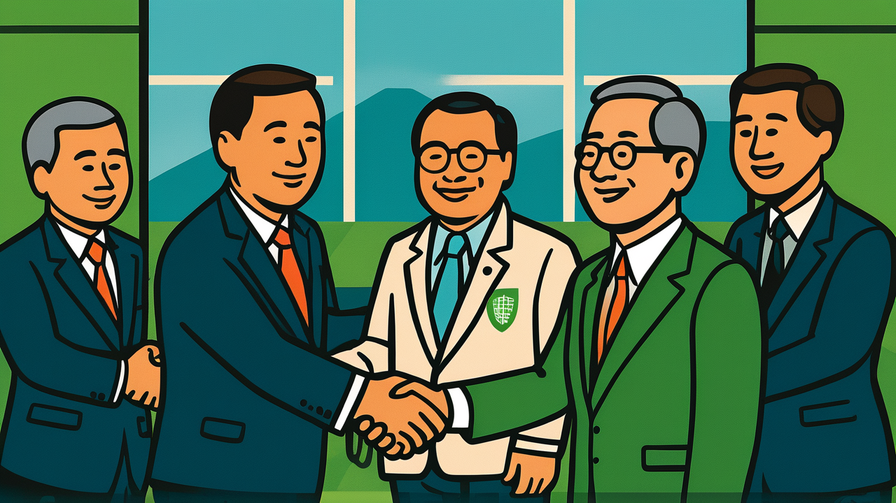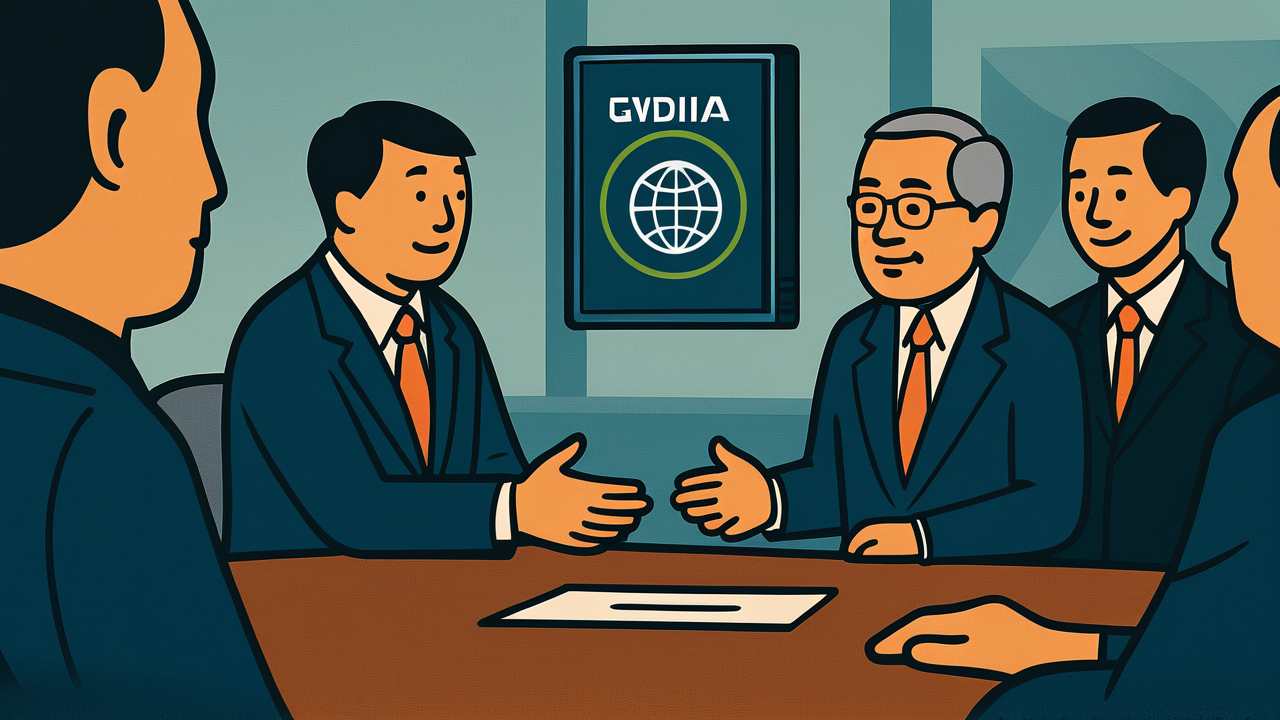[Disclaimer] This article is reconstructed based on information from external sources. Please verify the original source before referring to this content.
News Summary
The following content was published online. A translated summary is presented below. See the source for details.
Jensen Huang, the founder and CEO of NVIDIA, has been actively promoting artificial intelligence (AI) technology through high-profile meetings in both Washington, D.C. and Beijing, China this month. In the United States capital, Huang met with President Trump and various policymakers to discuss how AI can create jobs and strengthen America’s technology infrastructure. He reaffirmed NVIDIA’s commitment to supporting the administration’s goals of bringing more technology manufacturing back to the United States, a process known as “onshoring.” During his visit to China, Huang emphasized how AI technology can benefit businesses and society across the globe. These diplomatic technology discussions come at a crucial time when nations are competing to lead in AI development while also trying to balance cooperation and competition in the global tech industry. NVIDIA, as one of the world’s most valuable companies and a leader in AI chip manufacturing, plays a central role in providing the hardware that powers AI systems worldwide.
Source: NVIDIA
Our Commentary
Background and Context

NVIDIA has become one of the most important companies in the technology world, especially in the field of artificial intelligence. The company makes special computer chips called GPUs (Graphics Processing Units) that are essential for running AI programs. What started as a company making chips for video games has transformed into the backbone of the AI revolution, with NVIDIA’s chips powering everything from ChatGPT to self-driving cars. Jensen Huang, who co-founded NVIDIA in 1993, has led the company to a market value of over $3 trillion, making it one of the world’s most valuable corporations.
Expert Analysis
Technology policy experts view Huang’s diplomatic approach as strategic for several reasons. First, artificial intelligence development requires international cooperation because no single country has all the resources, talent, and data needed to advance the technology alone. Second, NVIDIA needs to maintain relationships with both the U.S. and China, its two largest markets, despite growing tensions between these nations over technology access. By emphasizing AI’s benefits for job creation and societal improvement, Huang is trying to position AI as a positive force rather than a threat to employment or national security. This messaging is crucial as governments worldwide grapple with how to regulate AI technology.
Additional Data and Fact Reinforcement
NVIDIA controls approximately 80% of the global market for AI training chips, making it almost impossible for companies to develop advanced AI without using NVIDIA products. The company’s revenue grew by over 260% in 2024, reaching $60 billion, primarily driven by AI chip sales. The U.S. government has placed restrictions on selling the most advanced AI chips to China, citing national security concerns. Despite these restrictions, NVIDIA continues to sell modified versions of its chips to Chinese customers, generating about 20% of its revenue from the Chinese market. Industry analysts predict the global AI chip market will reach $400 billion by 2027, with NVIDIA likely maintaining its dominant position.
Related News
Huang’s meetings come during a period of intense global competition in AI development. The U.S. recently announced a $50 billion investment in domestic chip manufacturing, while China has committed over $150 billion to become self-sufficient in semiconductor technology. Other tech CEOs, including those from Google, Microsoft, and OpenAI, have also been meeting with government officials to shape AI policy. The European Union passed comprehensive AI regulations last year, setting standards that may influence global AI development. Meanwhile, countries like Japan, South Korea, and India are increasing their AI investments to avoid being left behind in what many call the “AI race.”
Summary

Jensen Huang’s diplomatic tour highlights how AI technology has become as important to international relations as traditional industries like energy or manufacturing. By promoting AI’s benefits while navigating complex political relationships, NVIDIA aims to maintain its position as the essential supplier of AI infrastructure to the world. The success of these efforts will likely shape not just NVIDIA’s future, but the development of AI technology globally for years to come.
Public Reaction
The tech community has largely praised Huang’s balanced approach to promoting AI across different nations. However, some critics worry that NVIDIA’s dominant market position gives it too much influence over global AI development. Human rights advocates have raised concerns about AI chips being used for surveillance in authoritarian countries. Investors have responded positively, with NVIDIA’s stock price rising after the meetings were announced. On social media, many users expressed hope that international cooperation on AI could lead to breakthrough technologies, while others feared that sharing advanced technology might compromise national security interests.
Frequently Asked Questions
Q: Why is NVIDIA so important to AI development?
A: NVIDIA makes the specialized computer chips (GPUs) that are essential for training and running AI systems. These chips can perform the massive calculations needed for AI much faster than regular computer processors.
Q: What does “onshoring” mean in technology?
A: Onshoring means bringing manufacturing and production back to a company’s home country. For the U.S., this means building chip factories in America instead of relying on factories in other countries.
Q: Can AI really create more jobs than it eliminates?
A: This is heavily debated. While AI may eliminate some jobs, it’s also creating new types of jobs in AI development, maintenance, and industries that AI enables. The key is helping workers learn new skills to adapt to these changes.


